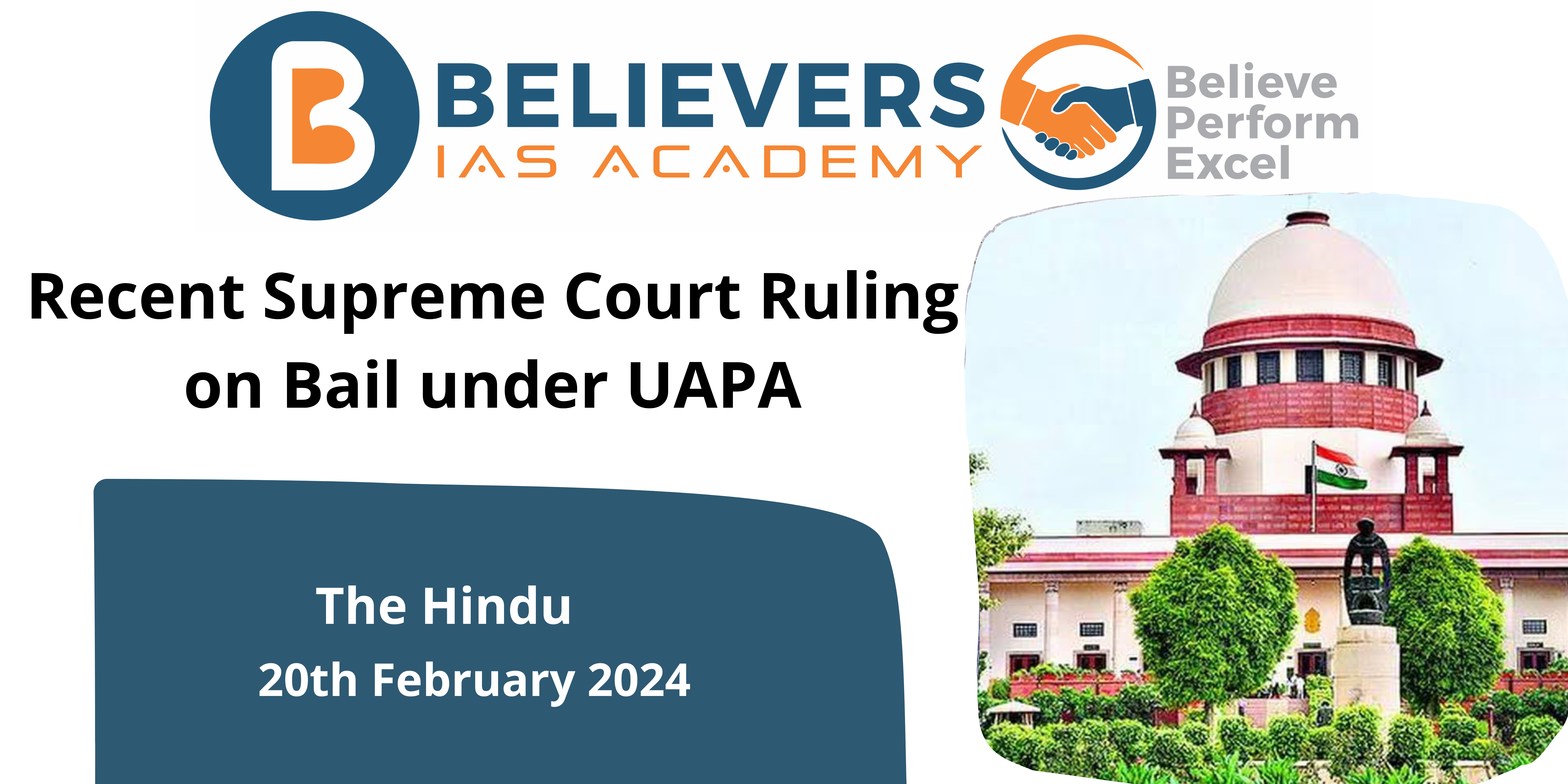Recent Supreme Court Ruling on Bail under UAPA
Çontext:
The Supreme Court’s recent denial of bail to an accused in a purported Khalistan module sheds light on the evolving stance regarding bail under the Unlawful Activities Prevention Act (UAPA).
Relevance:
GS-03 (Security)
Evolution of Bail Provision under UAPA:
- 2008: The UAPA Amendment Act, 2008 introduced Section 43D (5), mandating courts to refuse bail if there were reasonable grounds to believe the accusations were prima facie true, altering the presumption of innocence.
- 2016: Angela Harish Sontakke v State of Maharashtra saw bail granted despite Section 43D (5)’s strictness, emphasizing a balance between alleged offense and time spent in jail.
- 2019: National Investigation Agency v Zahoor Amhad Shah Watali narrowed bail prospects by requiring courts to accept NIA’s version without scrutinizing case merits post-charges framing.
- 2021: Union of India v K.A. Najeeb highlighted bail possibility based on prolonged detention violating Article 21 rights.
- Delhi High Court in State of NCT of Delhi v Devangana Kalita separated evidence from NIA inferences, leading to bail.
- 2023: Vernon Gonsalves v State of Maharashtra diverged from Watali, emphasizing evidence analysis for bail.
Recent Denial of Bail:
- In the recent case, bail was denied, adhering exclusively to Watali precedent, contradicting the Gonsalves ruling.
- This discrepancy in judicial interpretations raises concerns about consistency in applying UAPA bail provisions.
Unlawful Activities Prevention Act (UAPA):
- Initially passed in 1967, the Unlawful Activities Prevention Act (UAPA) was crafted to address secessionist movements and anti-national activities.
- Since its inception, the legislation has undergone multiple amendments, with the latest in 2019, broadening its scope to encompass issues such as terrorist financing, cyber-terrorism, individual designation, and property seizure.
- Key Features and Provisions:
- Jurisdiction and Enforcement: The UAPA confers authority upon the National Investigation Agency (NIA) to investigate and prosecute cases falling under its purview nationwide.
- Penalties: The Act prescribes severe penalties, including the death penalty and life imprisonment, for individuals convicted of engaging in terrorist acts.
- Detention and Bail: Suspects can be detained without charge or trial for up to 180 days under the UAPA. Additionally, bail may be denied unless the court is convinced of the accused’s innocence.
- Definition of Unlawful Activity: It defines unlawful activity as any action that supports or incites the cession or secession of any part of India, or that questions or disrespects its sovereignty and territorial integrity.
- Terrorism Definition: The UAPA defines terrorism as any act that causes or intends to cause death or injury to any person, or damage or destruction to any property, or that threatens the unity, security, or economic stability of India or any other country.
- The UAPA stands as a crucial legislative tool in India’s efforts to combat terrorism and uphold national security.




